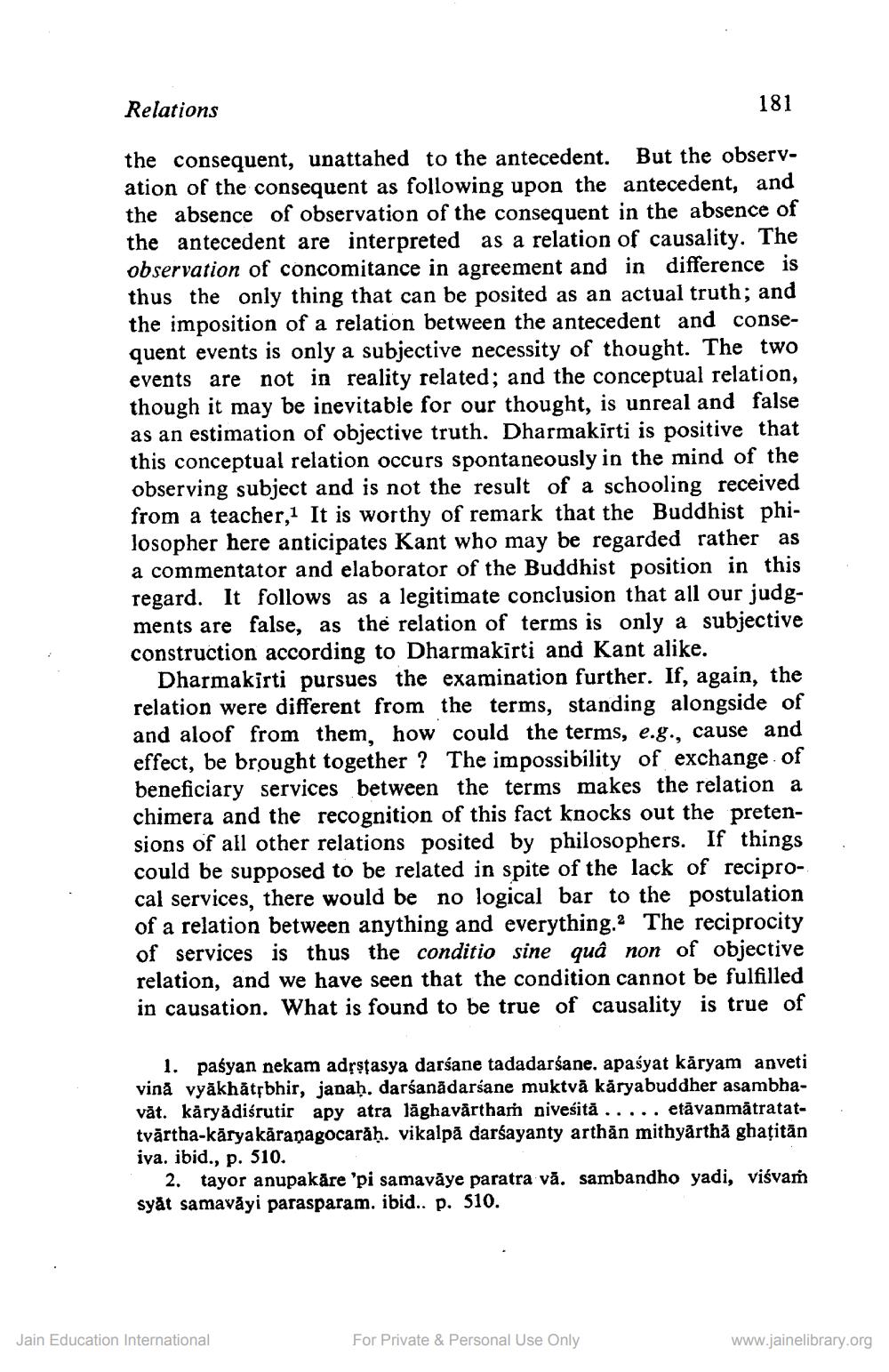________________
Relations
181
the consequent, unattahed to the antecedent. But the observation of the consequent as following upon the antecedent, and the absence of observation of the consequent in the absence of the antecedent are interpreted as a relation of causality. The observation of concomitance in agreement and in difference is thus the only thing that can be posited as an actual truth, and the imposition of a relation between the antecedent and consequent events is only a subjective necessity of thought. The two events are not in reality related; and the conceptual relation, though it may be inevitable for our thought, is unreal and false as an estimation of objective truth. Dharmakirti is positive that this conceptual relation occurs spontaneously in the mind of the observing subject and is not the result of a schooling received from a teacher, 1 It is worthy of remark that the Buddhist philosopher here anticipates Kant who may be regarded rather as a commentator and elaborator of the Buddhist position in this regard. It follows as a legitimate conclusion that all our judg
nts are false, as the relation of terms is only a subjective construction according to Dharmakirti and Kant alike.
Dharmakirti pursues the examination further. If, again, the relation were different from the terms, standing alongside of and aloof from them, how could the terms, e.g., cause and effect, be brought together? The impossibility of exchange of beneficiary services between the terms makes the relation a chimera and the recognition of this fact knocks out the pretensions of all other relations posited by philosophers. If things could be supposed to be related in spite of the lack of reciprocal services, there would be no logical bar to the postulation of a relation between anything and everything. The reciprocity of services is thus the conditio sine quâ non of objective relation, and we have seen that the condition cannot be fulfilled in causation. What is found to be true of causality is true of
1. paśyan nekam adrstasya darśane tadadarśane, apaśyat käryam anveti vină vyākhātsbhir, janaḥ, darśanādarśane muktvå käryabuddher asambhavāt. käryädiśrutir apy atra lāghavärtha nivesită . . . . . etāvanmātratattvārtha-kāryakāraṇagocară”. Vikalpă darśayanty arthăn mithyārthả ghatitān iva. ibid., p. 510.
2. tayor anupakāre 'pi samavāye paratra vă. sambandho yadi, viśvam syåt samavāyi parasparam. ibid. p. 510.
Jain Education International
For Private & Personal Use Only
www.jainelibrary.org




